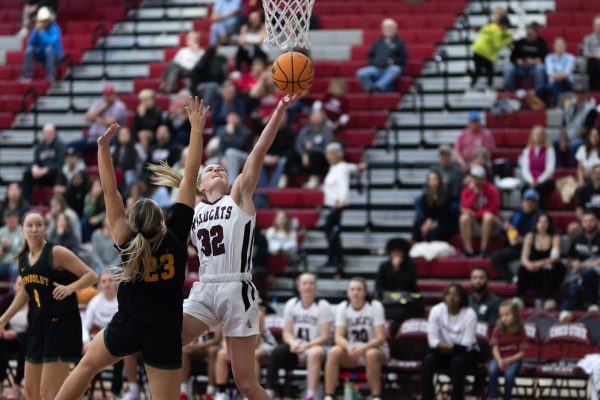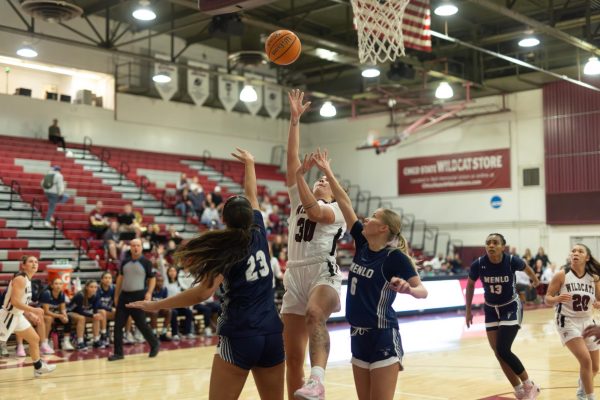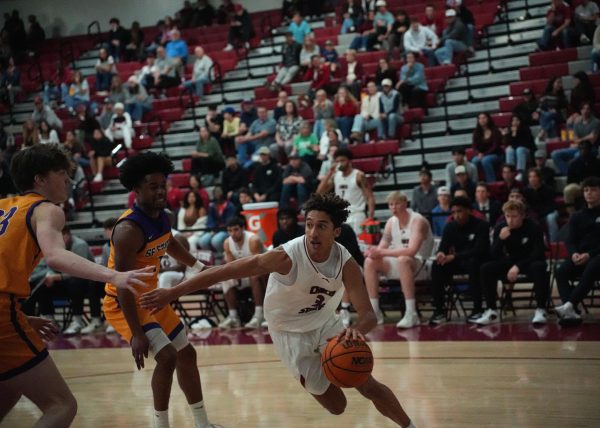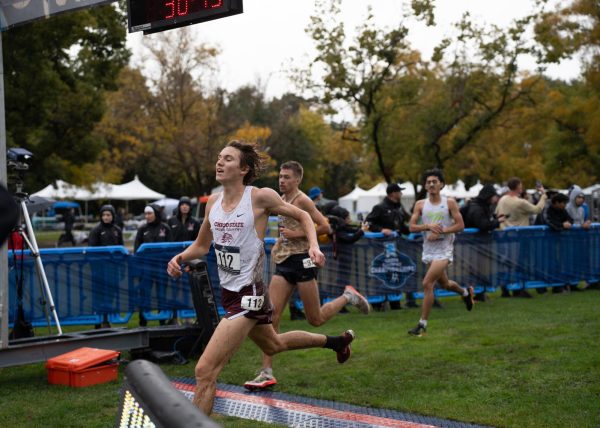Cam you see straight?
Concussions are nothing new to sports, but the way the NFL has decided to handle them has me appalled.
The initial cheer I had when watching my favorite team, the Broncos, take down Panthers quarterback Cam Newton quickly dissipated as he slowly peeled himself off the turf for the fourth time. His confusion and slow reaction to getting up in the fourth quarter should have been a wake up call to the referees and NFL, who left Newton unchecked during the game.
The league has cracked down on helmet-to-helmet contact, and has implemented spotters to pull out athletes who appear to have serious head injuries. While the NFL may be making the game safer for some players, the fear by the spotters of creating a competitive disadvantage by pulling the superstar of a team does not outweigh the risk of permanently damaging the player.
While the Panthers have yet to confirm if Newton received a concussion during the game, it was immediately after the Broncos won that Newton was taken to the locker room to be examined. The immediate response of the team is a clear indication that they had knowledge Newton should have been pulled in the game, and chose to win a game over the safety of their star quarterback.
The Broncos are not entirely at fault for the damage Newton received, as injuries are bound to occur when forcibly taking someone to the ground by charging into them, however the act of targeting Newton’s helmet on four separate occasions is something that cannot be overlooked. The negligence of the referees to call the foul for the helmet-to-helmet contact and draw attention to the issue only added to the danger Newton faced in the game.
While it’s clear that any player can take themselves out of a game when they deem it necessary, it’s often the case that players will play through extreme injuries to prevent risking their spot on the team, or letting the team down. Chargers quarterback Philip Rivers played with a torn ACL in 2008 against the Patriots, and jeopardized his career to prevent letting down his team.
Even when Newton found it difficult to continue in the fourth quarter, it was clear he wouldn’t take himself out of the game. With a drive strong enough to propel players to play at the professional level, it’s rare to see them quit during a game to tend to their own injuries. The inability of Newton to think correctly because of the possible head trauma he faced made it difficult for the quarterback to consider leaving the game, and went ignored by his team, as well as the spotters who looked on from the sidelines.
Concussions will always happen in football and other sports, regardless of the padding and safety restrictions they add to the game. Cases like Newton’s show how a player’s biggest detriment can be their success and the dependance their team has on them. If spotters are choosing to overlook severe injuries to prevent a shift in gameplay, then there aren’t any winners, regardless of the scoreboard.
Kenta McAfee can be reached at [email protected], or on Twitter @KentaMcAfee.







